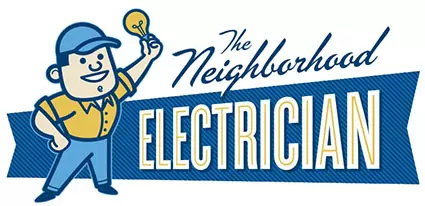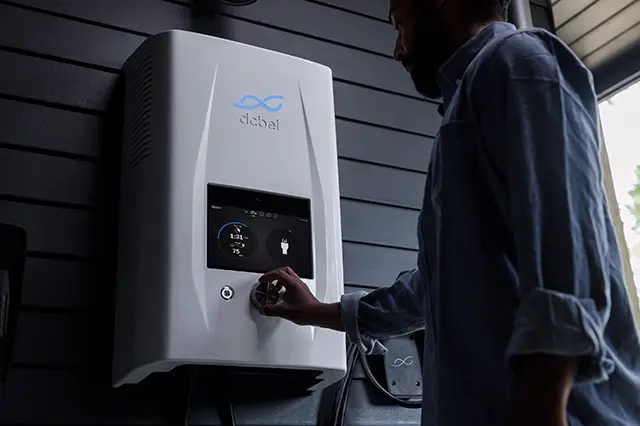Keep The Lights On: Essential Tips For Choosing The Right Backup Generator For Your Home
In today’s world, with the ever-increasing number of natural disasters and power outages, it’s important to be prepared to keep your home functioning in times of crisis. Having a backup generator can be invaluable when all other power sources have failed. But what type of generator should you choose for your home? With so many brands and models on the market, it can be difficult to know which one is right for you. In this blog post, we will explore some essential tips for choosing the right backup generator for your home. Read on to learn more about how you can keep the lights on even when disaster strikes!
Why do you need a backup generator?
A backup generator is a necessity for any home. A power outage can happen at any time, and a backup generator will keep your lights on and your family safe. Here are a few tips to choosing the right backup generator for your home.
Size: The size of the generator you need depends on the amount of power you want to generate. You should calculate the watts you need by adding up the wattage of the appliances you want to run during a power outage.
Fuel type: The most common fuel types for backup generators are gasoline, propane, and natural gas. Gasoline is the least expensive option, but it can be difficult to find during a power outage. Propane is more expensive than gasoline, but it is easier to find. Natural gas is the most expensive option, but it is the most convenient because you can hook it up to your existing natural gas line.
Runtime: The runtime of a generator is the amount of time it can run without refueling. You should choose a generator with a runtime that meets your needs. If you only need it for short outages, then a shorter runtime is fine. However, if you live in an area where power outages are common, then you will need a generator with a longer runtime so that you don’t have to refuel it as often.
Noise level: Noise level is important if you plan on running your generator while you are sleeping or while people are trying to work from home. Look for a generator with a low decibel rating, so it won’t be too loud.
Safety: Backup generators produce carbon monoxide, which can be dangerous if not properly vented. Make sure you buy a generator with an exhaust system that vents the carbon monoxide away from your home. You should also install a carbon monoxide detector in your home and check it regularly to make sure it is functioning correctly.
These are just a few tips to help you choose the right backup generator for your home. Always do your research before making any major purchases and make sure you buy from a reputable dealer.
What are the different types of backup generators?
When the power goes out, a backup generator can keep your home running smoothly. But how do you choose the right one for your needs?
There are several factors to consider when choosing a backup generator, including:
-The size of your home
-The amount of power you need
-Your budget
-Fuel type
-Noise level
-Ease of use
Once you’ve considered these factors, you can narrow down your choices and select the best generator for your needs. Here are some of the most popular types of backup generators:
1. Portable generators: These are small and lightweight, making them easy to move around. They’re ideal for powering essential devices like lights and refrigerators during a power outage. However, they may not be able to power everything in your home at once. And since they run on gasoline, they can be noisy.
2. Standby generators: These are permanently installed outside your home and connected to your natural gas or propane line. They automatically turn on during a power outage and can supply enough power to run your entire home. Standby generators are more expensive than portable generators, but they’re also more reliable and less likely to be damaged by severe weather conditions.
3. Solar generators: These rely on solar panels to convert sunlight into electrical energy, so they’re environmentally friendly and emissions-free.Solar generators are also silent, making them ideal for use in RVs and camping trips.
4. Generator kits: These are pre-assembled generator sets with all the parts and accessories you need to build your own generator. The kits usually come with instructions, making them easy to assemble and install. They can be powered by natural gas, propane, or gasoline, depending on your preferences.
No matter which type of generator you choose, make sure you read the instructions carefully and use the generator properly.
What size backup generator do you need?
If you live in an area that is susceptible to power outages, then a backup generator is a wise investment. But what size do you need?
The answer to that question depends on a number of factors, including the size of your home, the appliances and electronics you need to keep running, and your budget.
To help you choose the right size generator for your needs, we’ve put together this handy guide. Keep reading to learn more about choosing the right backup generator for your home.
How much does a backup generator cost?
There is no definitive answer to this question as the cost of a backup generator will vary depending on a number of factors, such as the size and power output of the unit, the brand, and where you purchase it from. However, as a general guide, you can expect to pay anywhere from $500 to $5,000 for a quality backup generator.
When choosing a backup generator for your home, it is important to consider both the initial purchase price and the ongoing costs of running and maintaining the unit. The most expensive generator is not necessarily the best option – it is important to find a balance between cost and performance that meets your specific needs.
How do you install a backup generator?
When the power goes out, a backup generator can keep your home warm (or cool), cooking, and with lights on. Here are tips to help you choose and install the right one for your needs:
First, determine what type of fuel you want to use. Generators can run on gas, propane, or diesel. Each has its pros and cons. Gas is typically the most affordable fuel, but it can be hard to find in an emergency situation. Propane is a good middle-of-the-road option—it’s more expensive than gas but not as difficult to find as diesel. Diesel is the most expensive fuel but it’s also the most reliable in an emergency situation.
Once you’ve decided on a fuel, pick a size. The size of your generator should be based on the wattage of the appliances and devices you want to run. A good rule of thumb is to pick a generator that produces about double the amount of wattage that you need. So, if you need to run a fridge and some lights, you’ll need a generator that produces around 2,000 watts.
Now that you know what size and fuel type you need, it’s time to install your backup generator. If you’re not comfortable doing electrical work, hire a professional electrician to help with the installation process. They will be able to ensure that everything is properly wired and that your generator
How do you use a backup generator?
If a power outage occurs, a backup generator can keep your lights on and your appliances running. You’ll need to determine the size of the generator you need based on the watts required for the appliances you want to run. Once you have a generator, you’ll need to connect it to your home’s electrical system. You can do this by connecting it directly to your circuit breaker panel or by using a transfer switch. Be sure to follow all safety instructions when connecting and operating your generator.
Conclusion
Choosing the right backup generator for your home is no small decision. We hope that this article has provided you with essential tips and guidance to help you make an informed choice. No matter which type of generator you decide on, rest assured that it will be an invaluable addition to your home should disaster ever strike. Make sure to do your research before making a purchase so that you are able to select one that meets all of your needs and offers maximum reliability in the long-term.

